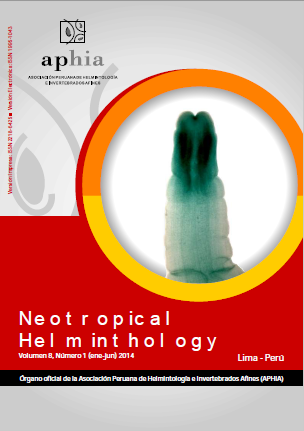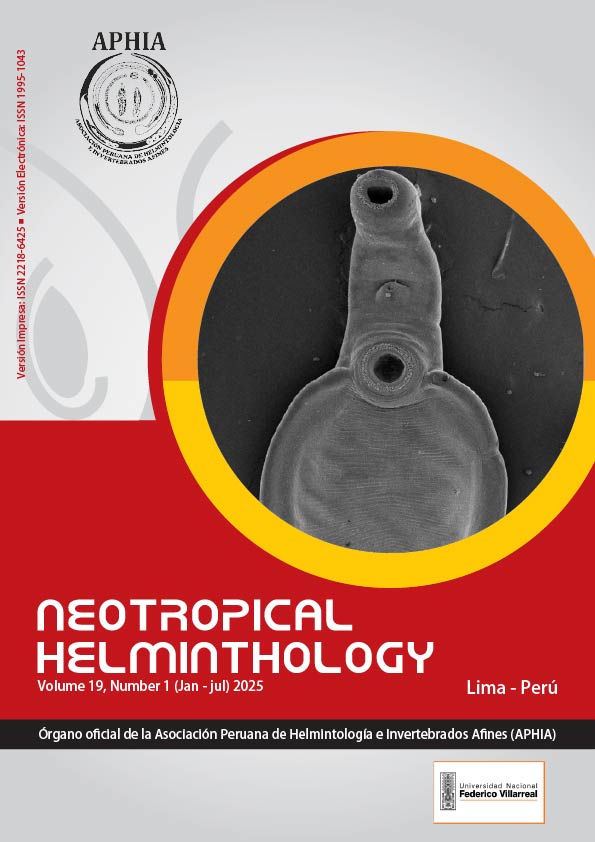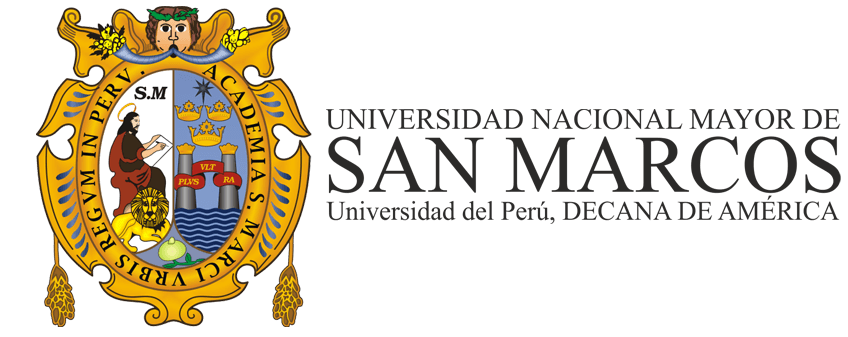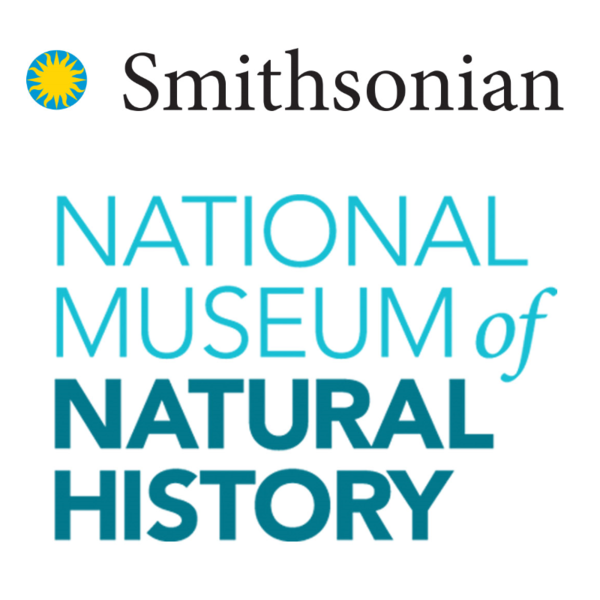DIOCTOPHYMA RENALE IN DOGS (CANIS FAMILIARIS) IN URUGUAY
DOI:
https://doi.org/10.24039/rnh201481905Keywords:
aberrant locations, canine, Dioctophyma, Uruguay.Abstract
Adults of Dioctophyma renale (Goeze, 1782) (Nematoda) can affect various domestic and wild mammals and occasionally humans. At this stage the nematode is found in the right kidney, but other aberrant locations have been reported. The purpose of this study was to report D. renale findings in dogs in Uruguay. The nematode was reported in canines with unspecific symptom of dioctophymosis and in two west coastal cities over the Uruguay River. We observed moving D. renale in the abdominal cavity and in the testicular bag when performing an ovariectomy and an orchiectomy. Parasite identification was based on the morphological characteristics, particularly size, color, reproductive structures especially in males. Accidental findings when performing surgical procedures confirm that one of the main forms of diagnosis increase the extra-renal casuistry. Dioctophymosis in dogs prompts considering preventive measures related to eating habits and to stimulate a responsible ownership, especially considering the potential risk of human infection.
Downloads
Published
How to Cite
Issue
Section
License
Copyright (c) 2021 Neotropical Helminthology

This work is licensed under a Creative Commons Attribution-NonCommercial-NoDerivatives 4.0 International License.
OBJETO: El AUTOR-CEDENTE transfiere de manera TOTAL Y SIN LIMITACIÓN alguna al CESIONARIO los derechos patrimoniales que le corresponden sobre la (s) obra(s) tituladas: xxxxxxxxxxxxxxxx, por el tiempo que establezca la ley internacional. En virtud de lo anterior, se entiende que el CESIONARIO adquiere el derecho de reproducción en todas sus modalidades, incluso para inclusión audiovisual; el derecho de transformación o adaptación, comunicación pública, traducción, distribución y, en general, cualquier tipo de explotación que de las obras se pueda realizar por cualquier medio conocido o por conocer en el territorio nacional o internacional.
REMUNERACIÓN: La cesión de los derechos patrimoniales de autor que mediante este contrato se hace será a título gratuito.
CONDICIONES Y LEGITIMIDAD DE LOS DERECHOS: El AUTOR-CEDENTE garantiza que es propietario integral de los derechos de explotación de la(s) obra(s) y en consecuencia garantiza que puede contratar y transferir los derechos aquí cedidos sin ningún tipo de limitación por no tener ningún tipo de gravamen, limitación o disposición. En todo caso, responderá por cualquier reclamo que en materia de derecho de autor se pueda presentar, exonerando de cualquier responsabilidad al CESIONARIO.
LICENCIA DE ACCESO ABIERTO: El AUTOR-CEDENTE autoriza que manuscrito publicado en La Revista Neotropical Helminthology permanece disponible para su consulta pública en el sitio web https://www.neotropicalhelminthology.com/ y en los diferentes sistemas de indexación y bases de datos en las que la revista tiene visibilidad, bajo la licencia Creative Commons, en la modalidad Reconocimiento-No comercial- Sin Trabajos derivados –aprobada en Perú, y por lo tanto son de acceso abierto. De ahí que los autores dan, sin derecho a retribución económica, a la Asociación Peruana de Helmintología e Invertebrados Afines (APHIA), los derechos de autor para la edición y reproducción a través de diferentes medios de difusión.


 Numero 2 Volumen 19 - 2025 (versión Anticipada)
Numero 2 Volumen 19 - 2025 (versión Anticipada)














































